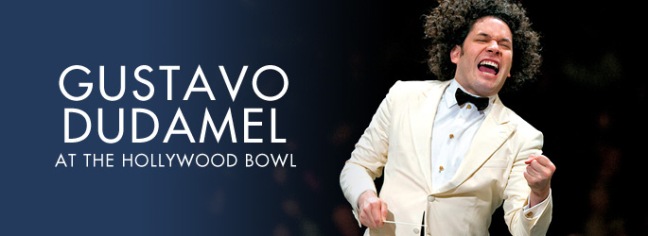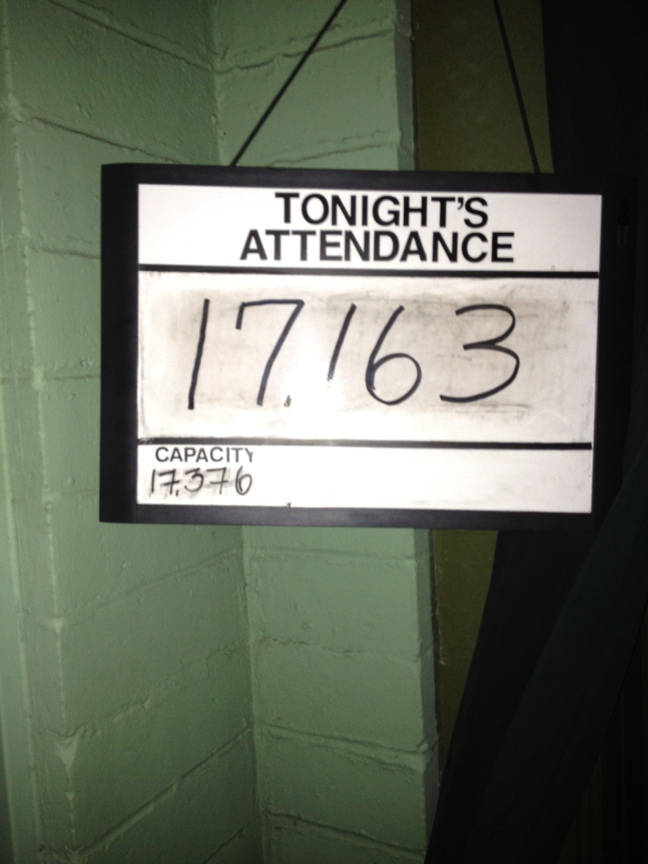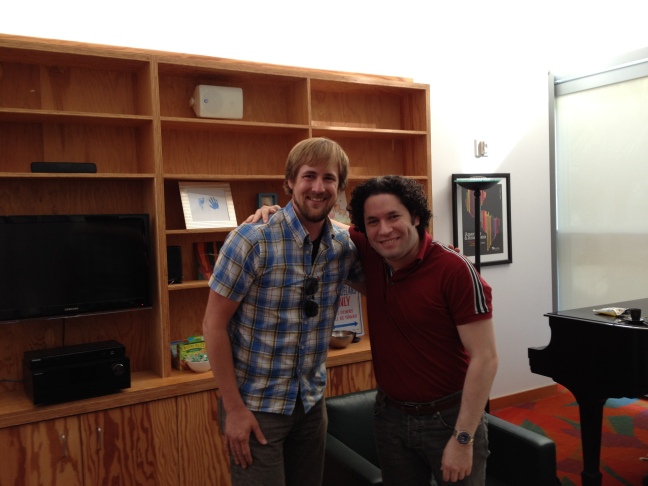 Tens of thousands of classical music fans have been streaming to the Hollywood Bowl this week as LA Philharmonic music director Gustavo Dudamel has set up shop there for his annual summer residency. And the crowds are only expected to get larger in the week ahead, as Dudamel conducts a concert performance of Verdi’s opera Rigoletto on Sunday evening; he continues his exploration of North and South American music with two concerts during the week; and after that, collaborates for the very first time with tenor Plácido Domingo.
Tens of thousands of classical music fans have been streaming to the Hollywood Bowl this week as LA Philharmonic music director Gustavo Dudamel has set up shop there for his annual summer residency. And the crowds are only expected to get larger in the week ahead, as Dudamel conducts a concert performance of Verdi’s opera Rigoletto on Sunday evening; he continues his exploration of North and South American music with two concerts during the week; and after that, collaborates for the very first time with tenor Plácido Domingo.
Dudamel kicked off his Bowl appearances this past Tuesday with a performance featuring cellist Yo-Yo Ma. I caught up with Dudamel the next day, in his studio at Walt Disney Concert Hall.
BL: On my way out [of the Hollywood Bowl] last night, I snapped this photo.
GD: Wow!
BL: Almost capacity.
GD: That’s amazing!
BL: You know, the Hollywood Bowl is such an amazing place for making this music accessible to so many people. It must be gratifying to see that there are 17,000-plus people experiencing it.
GD: At the end, it’s the goal of what the Hollywood Bowl is about. It’s beautiful to see how people feel connected with what is happening with the music. When you think about classical music, you think about a small amount of people sitting in the audience. But when you see these kind of things, you see that music really is changing; classical music really is changing. It is changing because the access that people have to classical music is more and more and more.
BL: You’ve talked about the importance for the Philharmonic to play opera. What does the ensemble learn from playing opera? I imagine flexibility plays a part.
GD: Flexibility is the main thing in all of this. Because, to play opera is to listen a lot. And to really understand the human instrument, which is the voice. You learn a lot from that. This kind of flexibility in the recicativos and in the arias, where you have to follow the ornaments of the singers–to arrive to a top note and then do a scale down–creates a beautiful flexibility in the way the orchestra plays. That is one of the reasons. And another reason is that it’s so great to play opera!
BL: I’m really looking forward to hearing the Ginastera Piano Concerto No. 1 live [on Thursday night’s concert]. I’ve never heard it performed in concert before. Why do you suppose it isn’t performed as often as some of the other great piano concertos?
GD: Because it is very difficult! That is the main reason. You need a really virtuoso pianist. You need a very good orchestra, because it’s very difficult, very virtuoso for the orchestra. But, this work represents a time in American classical music, a wonderful time: they were experimenting. This Ginastera is not the same Ginastera as Estancia. It’s a more modern, new kind of music, avant-garde, aggressive. And that is why I think this concerto is not easy to digest. Because it’s like that: the power and the experience of a composer developing his artistic life.
BL: I have two words for you for this next concert: Plácido Domingo.
GD: Oh, wow! It’s a huge honor for me to work with Plácido. It’s the first time we will work together. We are very good friends. I admire him. He’s The Maestro. For music in general, not just [vocal] music. So, it’s a huge honor. And it’s a beautiful program because it’s a journey through the opera, operetta, Broadway, mariachi, Latin songs. It will be a beautiful, beautiful evening.



One thought on “A Conversation With Gustavo Dudamel: “Classical Music Really Is Changing””